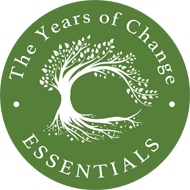
ESSENTIALS 2: MENOPAUSE
#2.3 Alternative and complimentary methods to help with menopausal symptoms
Years ago, if someone had suggested that you meditate, eat nettle soup or practice Yoga to help you reduce menopausal symptoms you may have thought it all a bit ‘out there’! But times have changed and embracing alternative or complimentary methods is now considered ‘the thing to do’ by many.
Whilst conventional medicine will always have its place, if you could improve symptoms and life quality with natural products, the right type of activities and good nutrition wouldn’t that be the better choice?
Even if you do choose to take conventional medicines at this time, adding in complimentary methods will further improve the whole situation, so a win, win! Practitioners are generally much more open minded about using alternative or complimentary methods these days, some offering only these methods.
I say this a lot, but YOU are in control here. It is YOUR choice what you do to help yourself live well. I am passionate about encouraging you to ask questions if you seek help from any type of practitioner. Take the information and give yourself time to digest it, consider it then make an informed choice about how you want to go forward. The thing is, you only know what you know. This is why, in this program, I aim to bring you as much information as I can to help you make your choices and take control of yourself care.
We are going to explore some ideas;
 HERBAL/PLANT MEDICINE
HERBAL/PLANT MEDICINE
It is worth exploring if you have moderate symptoms and if you prefer to avoid any synthetic hormones. In many places in the world herbal medicines have been used for ever! If you decide to use herbal or plant remedies do check with your health provider that it is safe to take your chosen herb or plant supplements if you are on other medication.
 PLANT FOODS AND HERBS
PLANT FOODS AND HERBS
Many contain phytoestrogens (the good guys!) These help to balance oestrogen levels and are found in foods such as
- Apples
- Potatoes
- Nuts
- Seeds
- Carrots
- Oats
Plant foods eaten straight from source are great sources of fibre and anti-oxidants. Broccoli is King of the Vegetables!!
Herbs and plants play a big part in menopausal and ongoing health. As you can see from the section on herbs and plants there are many helpful properties to be found in them. Here is a reminder of the benefits and how they can help YOU:
- Vasomotor symptoms (hot flushes and night sweats)
- Irritability / anxiousness
- Sleep problems
- Cardiovascular health
- Gut health
- Sexual health
- Brain health and function
- Bone health
- Aches and pains
- Inflammation
- Normalising blood sugars
- Increasing fibre in your diet
- Managing your weight
- Bloating / digestive issues
- Stress management
So many positives!
SPECIAL NOTE – if you are undergoing any treatment for cancer ALWAYS refer to your specialist or health care provider before using supplements, herbs and oils. Some essential oils and herbs can have adverse effects. ALSO check which oils can be used directly on your skin as some are not suitable.
 OILS
OILS
Here are a couple of very lovely mixes to use on your skin, for massage (even if you DIY!)
- Lavender; Marjoram; Ylang Ylang; Neroli (ratio of 20:10:15:2 - making up 3% of carrier oil)
- In a carrier oil of Almond and jojoba oil (ratio 9:1)
- Neroli; rosemary; fennel; geranium; rose make up a wonderful concoction shown to be beneficial for sexual function.
 ACUPUNCTURE AND ACCUPRESSURE
ACUPUNCTURE AND ACCUPRESSURE
Chinese medicine is something worth exploring as there is evidence that it can help with menopausal symptoms. I would recommend seeking out a practitioner who can treat you. The principle of acupressure treatment is that the practitioner inputs positive energy into the negative energy within the acupressure points.
 MEDITATION
MEDITATION
Meditation has so many benefits;
Increases Grey Matter in the brain so may help with age related memory loss
Calms the mind, allows you to refocus
Reduces stress and anxiety
Improves sleep
Helps control pain
 RELAXATION
RELAXATION
Beneficial for calming the parasympathetic nervous system; Lowering the heart rate; lowering blood pressure; reducing vasomotor symptoms and releasing tension in muscles.
 YOGA/PILATES/TAI CHI
YOGA/PILATES/TAI CHI
All of these exercise techniques are fabulous for calming the mind and body and connecting with the breath.
 BREATHING TECHNIQUES
BREATHING TECHNIQUES
There are many different breathing techniques and exercises and I will introduce some in this program.
 MINDFULNESS
MINDFULNESS
Mindfulness is all about being ‘in the moment’.
Stopping those voices in your head “I haven’t sorted dinner” “I must phone my friend” “I didn’t make that appointment” etc, etc, etc…
This is hard! As we know, there can be so many pressures at this stage of life and so much to think of – but you must try and STOP if you can!
 APPS AND PODCASTS
APPS AND PODCASTS
There are so many helpful apps and podcasts you can use to help release tension and learn ways to help you relax such as the calm app or insight timer. Have fun exploring the ones that you think are suitable for you as we all connect with different things.